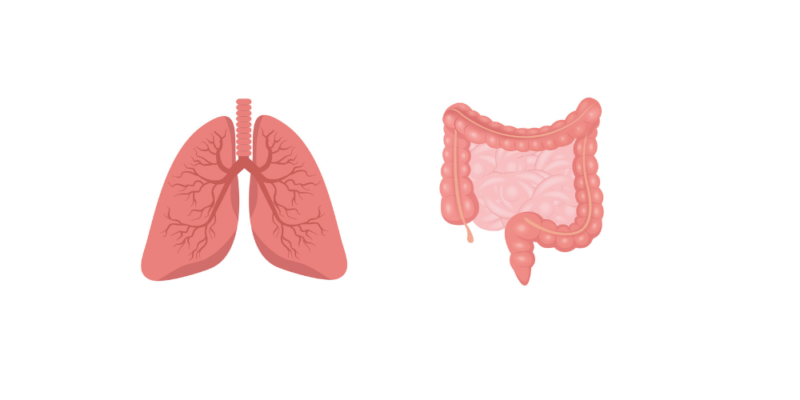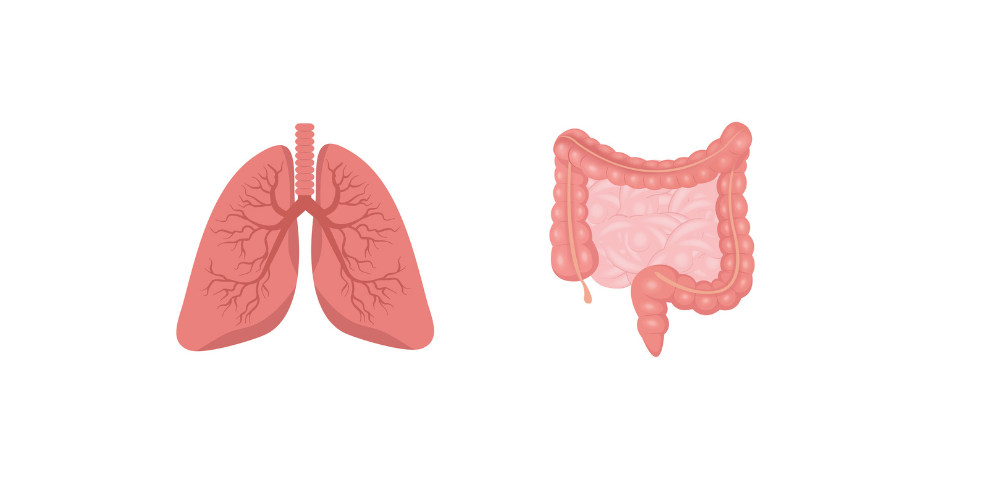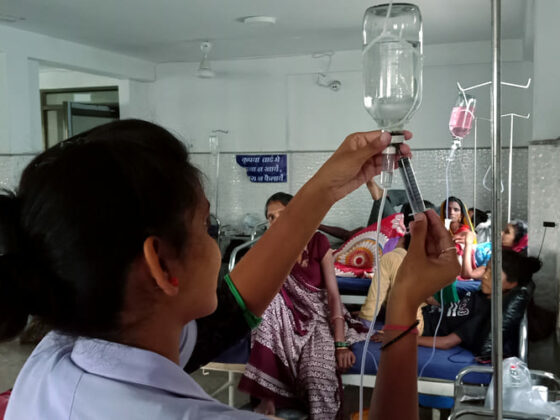New research findings presented at ESMO 2021 show progress in adjuvant treatment for non-small-cell lung cancer (NSCLC), a novel inhibitor for HER2+ NSCLC patients, and the latest from the FOCUS 4 adaptive, molecularly stratified, umbrella trial platform, set up to evaluate new treatments for patients with metastatic colorectal cancer.
Progress in adjuvant immunotherapy for early-stage NSCLC
Despite treatment with curative intent, up to 60% of patients with stage I‒III NSCLC experience disease relapse. The phase III Impower010 study, abstract LBA9, was designed to compare efficacy and safety of the PD-L1 checkpoint inhibitor atezolizumab (atezo) with best supportive care as adjuvant therapy in patients with stage IB‒stage IIIA NSCLC following surgical resection and adjuvant chemotherapy.
Impower010 included 1,280 patients with completely resected stage IB‒stage III NSCLC who received up to four cycles of cisplatin-based chemotherapy. Researchers then randomly assigned 1,005 patients without progression following chemotherapy 1:1 to either best supportive care or 1,200 mg atezo every three weeks for 16 cycles until disease relapse or unacceptable toxicity.
The primary results, presented in June at ASCO 2021, found atezo showed statistically significant disease-free survival benefits for atezo vs best supportive care in patients with stage II‒IIIA NSCLC with PD-L1≥1% (HR=0.66), and in all patients with stage II-IIIA disease (HR=0.79). In the intention-to-treat population, which also included all patients with stage IB‒IIA NSCLC, while a trend towards disease-free benefit survival was found for atezo, it did not reach statistical significance.
For the current ESMO analysis, published simultaneously in The Lancet, presenter Enriquet Felip (Vall D’Hebron Institute of Oncology, Barcelona, Spain) focused on exploratory analyses of disease relapse in the three different populations. Results showed that, among early-stage NSCLC patients with PD-L1≥1%, the relapse rate for patients taking atezo was 29.4% versus 44.7% for those receiving best supportive care. For the full stage II‒IIIA population it was 33.3% vs 43.0%, and for the intention to treat population it was 30.8% vs 40.8%.
When analysed according to relapse site (locoregional-only or distant-only, locoregional and distant, and central nervous system only), investigators found a similar distribution across relapse sites for the two arms.
For patients with PD-L1 ≥1%, locoregional-only relapse occurred in 48% of patients receiving atezo versus 41% receiving best supportive care, the comparative figures for distant-only relapse were 88% for atezo versus 39% for best supportive care, and for distant only CNS were 11% for atezo versus 12% for best supportive care.
Commenting on the results, Antonio Passaro (European Institute of Oncology, Milan) said, “The updated results from Impower010 support the practice-changing outcomes from the interim DFS analysis and confirm the role of atezolizumab after adjuvant chemotherapy in patients with radically resected, early-stage NSCLC.” It was reassuring, he added, that although there was no clear difference in patterns of relapse between the arms, sites of relapse were consistent with what would be expected in this setting.
Targeting HER2 mutations in NSCLC
HER2 mutations occur in around 3% of NSCLC patients, but no HER2 targeted therapies have been approved for patients with NSCLC, representing a high unmet need. Trastuzumab deruxtecan (T-DXd) is a novel antibody-drug conjugate composed of an anti-HER2 antibody, cleavable tetrapeptide-based linker and topoisomerase inhibitor payload.
In the phase II DESTINY-Lung01 trial, abstract LBA-45, Bob Li (Memorial Sloan Kettering Cancer Center, New York) and colleagues assessed the efficacy and safety of T-DXd in 91 patients with HER2-mutated, metastatic NSCLC refractory to standard treatment. Subjects were administered 6.4 mg/kg of T-DXd.
Results, published simultaneously in The New England Journal of Medicine, showed a centrally confirmed objective response occurred in 55% (n=50) of the patients (95%CI 44‒65) ‒ 49 of the patients experiencing a partial response, and one patient a complete response. Median duration of response was 9.3 months (95%CI 5.7‒14.7), median progression-free survival was 8.2 months (95%CI 6.0‒11.9) and median overall survival was 17.8 months (95%CI 13.8‒22.1). Treatment-related adverse events were experienced by 96.7% of patients, with 46.2% being grade 3 or higher. The most commonly reported adverse events graded 3 or above were neutropenia (19%), anaemia (10%), nausea (9%) and fatigue (7%).
“DESTINY-Lung01 provides compelling evidence of positive benefit/risk balance with [T-DXd] in the second-line setting and supports its establishment as a potential new treatment standard,” concluded Li.
FOCUS4-C shows potential of umbrella platform trials in mCRC
The FOCUS4-C trial, abstract 3820, explored in a phase II randomised trial whether adavosertib could delay tumour growth in patients with an aggressive sub-type of inoperable colorectal cancer (CRC) with limited treatment options.
The FOCUS 4 trial programme is an adaptive molecularly stratified umbrella platform trial evaluating safety and efficacy of novel treatment in targeted biomarker subgroups after 16 weeks of first-line therapy in metastatic CRC. For the study, all eligible patients undergo genome sequencing to identify genetic biomarkers relating to their cancer. Patients are then matched to the trial arm/ treatment to which they are most likely to respond.
The Focus4-C part of the trial, presented at ESMO and published simultaneously in the JCO, tested the safety and efficacy of adavosertib in patients with RAS/TP53-mutant metastatic CRC who had achieved disease stability following induction chemotherapy, compared with active monitoring. Adavosertib kills cancer cells by inhibiting WEE1 kinase, a protein that helps regulate cell division in tumours by ensuring that any DNA damage is repaired before cells divide. The theory is that tumours with RAS and TP53 mutations would be more sensitive to the effects of the drug, as these tumours have already placed the process of cell replication under stress.
For FOCUS4-C, 69 patients from 25 UK hospitals were randomly assigned to adavosertib (n=44) or active monitoring (n=25). Results showed no difference in overall survival between the two groups (P=0.65). However there was a significant difference in progression-free survival, which was 3.61 months for adavosertib vs 1.87 months for active monitoring (HR=0.35; 95%CI 0.18‒0.68; P=0.0022). In a prespecified subgroup analysis for progression-free survival, adavosertib activity was greater in left-sided tumours (HR=0.24) than right-sided tumours (HR=1.02) (interaction P=0.043). Adavosertib demonstrated an acceptable safety profile, with grade 3 toxicities including diarrhoea (9%), nausea (5%), and neutropenia (7 %).
“These results show promising signs that adavosertib may be effective in delaying re-growth of bowel [colorectal] cancer in some patients and is well tolerated. The findings are particularly encouraging as the subset of patients involved represent a third of all bowel cancer patients and, while other patients have treatments developed specifically for their tumour types, this group currently has very limited treatment options,” said Jenny Seligmann, study presenter (University of Leeds, UK).
Since the aim of the FOCUS4 programme is to test novel agents efficiently with specified biomarker subgroups in mCRC, she added, any demonstrated efficacy requires further confirmatory studies.












